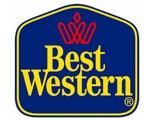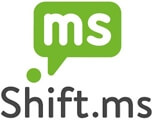In part 1 we had a look at the RP, Yorkshire and Scouse accents. In this blog we will continue on and look at more of the accents found within the British Isles.
Brummie
The most famous of the Midlands accents is the Brummie accent from Birmingham. The term derives from Brummagem or Bromwichham, which are historical variants of the name Birmingham. Whilst Brummie is not the only accent or dialect to be found in the Midlands, it is more well known than it’s neighbours in the Black Country or Coventry.
Some examples of Brummie words and phrases:
Bostin(g)- meaning amazing, brilliant or excellent.
Shrapnel – this commonly refers to loose change
The outdoor – an exclusive West Midlands term for an off-licence
Characteristics:
- Words like “pie” and “tried” are pronounced like “poy” and “troyed”
- As in Northern English accents, the vowel in “puppies” and “blood” is pronounced higher in the mouth than in Southern English accents, sounding a bit like “pooppies” or “pawppies”
- The diphthong in “about” and “house” is raised, with a prononunciation ranging from IPA æʊ to ɛʉ (“heh-oose”).
- Words like “most” and “homes” are pronounced with a very low-starting diphthong, typically IPAʌʊ although it can start even lower, making “goat” sound like “gout” to outside ears.
Notable speakers of the Brummie accent include: Ozzy Osbourne, Jasper Carrott and Adrian Chiles.
You can hear an example of a midlands accent here courtesy of James M.
Geordie
The Geordie accent is found in the North East of England in the Tyneside area, predominantly in Newcastle-Upon-Tyne. The origins of the term are still up for debate, but in many respects Geordie is a direct continuation and development of the language spoken by the Anglo-Saxon settlers of this region. The Geordie accent has been voted the ‘sexiest accent in Britain’.
Some examples of Geordie words and phrases:
Howay- broadly meaning “come on!!”
Canny – meaning pleasant
Netty – toilet
Characteristics
- Foot Strut Merger – the syllable in footand could is pronounced with the same syllable as strut and
- Non-rhoticity – non-pronunciation of the post-vocalic ’r’ , in words such as bark, firm, permit.
- The /ai/ dipthong as in kite is raised so it sounds a bit more like the Standard British “kate.”
- The /au/ dipthong as in “about” is pronounced like “oo” in strong dialects. So about can sound like “aboot.”
Notable speakers of the Geordie accent include: Cheryl Cole, Ant & Dec, Paul Gascoigne, Sting
You can hear an example of the Geordie accent here courtesy of Laura E:
Cockney
The Cockney accent originates from the East End of London and can be considered the broadest form of London local accent. Cockney is characterized by its own special vocabulary and usage, and traditionally by its own development of “rhyming slang.” Rhyming slang, is still part of the true Cockney culture even if it is sometimes used for effect.
Common Cockney rhyming slang phrases
“Adam and Eve” – beleive
“Apples and pears” – stairs
“Plates of meat” – feet
Characteristics
- Raised vowel in words like trap and cat so these sounds like “trep” and “cet.”
- Non-rhoticity: see explanation in Brummie
- Trap-bath split: meaning that certain awords, like bath, can’t, and dance are pronounced with the broad-a in
- Glottal Stopping: the letter t is pronounced with the back of the throat (glottis) in between vowels; hence better becomes “be’uh”.
- L-vocalization: The l at the end of words often becomes a vowel sound Hence pal can seem to sound like “pow.”
- Th-Fronting: The th in words like think or this is pronounced with a more forward consonant depending on the word: thing becomes “fing,” this becomes “dis,” and mother becomes “muhvah.”
Notable Cockney speakers include: Michael Caine, Sir Alan Sugar, Amy Winehouse
You can hear an example of the Cockney accent here courtesy of Arthur Smith
We have a wide selection of accents and dialects available in the Voice Over section, so whatever you are looking for we can provide you with the most suitable option for your final product. Please view our sample page here: https://adelphistudio.com/voice-overs/.
Adelphi offices
Adelphi Studio offer subtitling and voice over services globally from our offices in the UK and the USA.
All US, Canadian, and South American enquiries should be directed to our US office while all other enquires should go to our UK office.
UK Office
Tel : +44 (0)114 272 3772
Email: sales@adelphistudio.com
US Office
Tel : 916 414 8714
Email: us@adelphistudio.com





